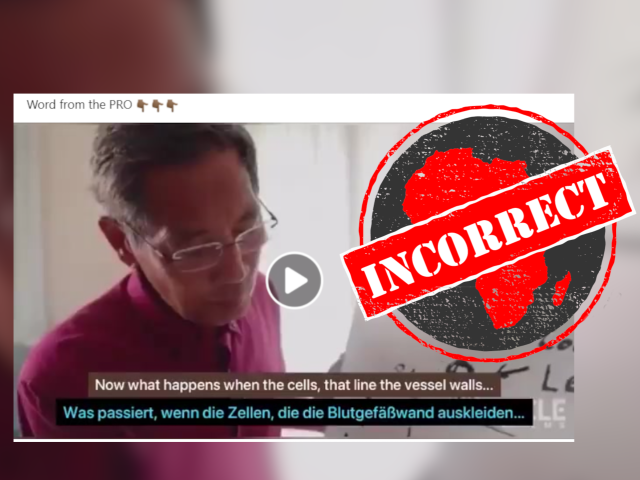The end of 2022 marks one year since I joined the Africa Check team as a researcher. Over the past 12 months, I’ve picked up important skills needed to hunt down, investigate and write about statements that people present as fact.
But the last year has also started to shape how I see the world, and how the world sees me. These are my thoughts on becoming more annoying at parties, and other things I’ve learned about being a fact-checker.
1. Experts either give you everything or nothing
Africa Check follows a rigorous, standardised process to fact-check claims. For longer-form fact-checks, this includes discussing available evidence with experts. We always reach out to people with specialist knowledge to contextualise a claim and find out how to interpret the evidence with nuance.
When I started fact-checking, I quickly learned that there are, by and large, two kinds of experts: those who ignore you, and those who give you everything.
Either an expert will take no notice of you, “read” receipts and all. Or they’ll be very willing to help when you reach out, sometimes spending hours walking you through a claim or debate, because they care about fact-checking and they think this work is important.
This kind of engagement is always welcome, and can make for rich, in-depth analyses of claims. But occasionally you end up with enough material for a mini thesis, and you have to sculpt your wedge of expansive, overly flowery academic language into something actually meaningful to everyone. In that sense, an expert giving you all the information can be a blessing and a curse. But it sure beats radio silence.
2. People are hungry for the truth
When you become a fact-checker, it feels like there’s a change in the way your mind works. Some of my colleagues have attested to this. To some extent, you lose the ability to let things slide. I no longer think “I’m not sure where I saw it” is an acceptable afterthought when hearing a story involving a statistic. I’m sprinkling casual conversations with a generous seasoning of eyebrow raises.
In the rare moments when your brain turns off this blue-tick verification badge requirement, people around you are there to pull you back in, with little quips reminding you who you are. Someone at a party will pipe up: “Careful saying that around her – you might get fact-checked.” Or people will expect you to just know statistics. “That true?” people will turn to you and ask, following someone’s statement that you weren’t even listening to – as if you’re some walking encyclopaedia.
I think this says something about how people view fact-checkers, but also about something more interesting: people want someone around to ask, a mini fact-checker on their shoulder to guide them when the lines between truth and fiction seem to get blurrier by the day. It says that they are hungry for the truth. It says that facts matter.
3. Anyone can be a fact-checker
What this reflexive reliance on the resident fact-checker also means is that people haven’t realised just how easy it is to fact-check, once you have a few basic tools. It can seem like these skills are some magical key that gives access to this repository of objective knowledge.
But that’s not true. Anyone can fact-check. Armed with some basic tools and an internet connection, you too can learn to separate truth from twaddle. Many of these skills are quite intuitive, and can be summed up in a list of tips. Things like: don’t trust something without knowing where it came from – and don’t share it. Don’t believe a headline if it doesn’t include a link. Be wary of claims that are trying to target your emotions. Google everything.
If you want to do a deeper dive into fact-checking, Africa Check has some great resources to learn these skills. And in the meantime, if you’re unsure whether a claim is accurate or not, send it through to us and we might just investigate it.



Add new comment